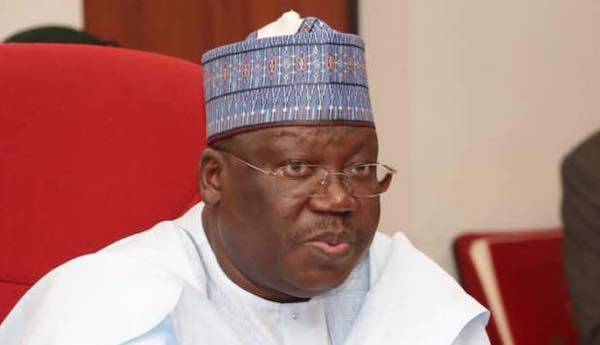News
Senate probes differences in deposit, lending rates by banks

The Senate on Thursday commenced a probe into the reasons behind the huge difference in deposit and lending interest rates among commercial banks and other financial institutions in the country.
The resolution followed the adoption of a motion titled: “Urgent need to reduce the gap between the lending interest rate and deposit interest rate among commercial banks and other financial institutions” sponsored by the Chairman of the Senate Committee on Finance, Olamilekan Adeola.
The Senate said the investigation has become imperative because Nigeria’s current lending rate is one of the highest in the world and suffocating the private sector of the economy.
Consequently, the upper legislative chamber mandated its Committees on Finance, Banking, Insurance and Other Financial Institutions and that of Legislative Compliance to carry out a holistic investigation into the matter.
The Committees were given two weeks to carry out the probe and report back to the Senate at plenary.
In his presentation, Adeola noted that “there is a huge divergence between the deposit and lending rates in Nigeria.”
He said: “The Senate notes that interest rate is the amount of interest due per period, as a proportion of the amount lent, deposited or borrowed (called the principal sum). It is the proportion of an amount loaned which a lender charges as interest to the borrower, normally expressed as an annual percentage.
“The Senate further notes that there is a huge divergence between the deposit and lending rates in Nigeria. According to data from the Central Bank of Nigeria, savings deposit rate as at December 2019 was 3.89 percent while the prime and maximum lending rates were 14.99 percent and 30.72 percent in the same period.
READ ALSO: EFCC arrests blogger over ‘fake’ report on cell, detainees
“Worried that Nigeria’s current lending rate is one of the highest in the world. While the prime lending rate according to the Central Bank of Nigeria Monetary Policy Rate (MPR) is 14.99 percent, loans are available in the commercial banks and other banks at an interest rate of between 22 and 27 percent.
“The Senate is also worried that Nigeria’s inflation rate has risen to 11.98 percent as at December 2019. This is the highest inflation rate between January and December 2019.”
Join the conversation
Support Ripples Nigeria, hold up solutions journalism
Balanced, fearless journalism driven by data comes at huge financial costs.
As a media platform, we hold leadership accountable and will not trade the right to press freedom and free speech for a piece of cake.
If you like what we do, and are ready to uphold solutions journalism, kindly donate to the Ripples Nigeria cause.
Your support would help to ensure that citizens and institutions continue to have free access to credible and reliable information for societal development.
























